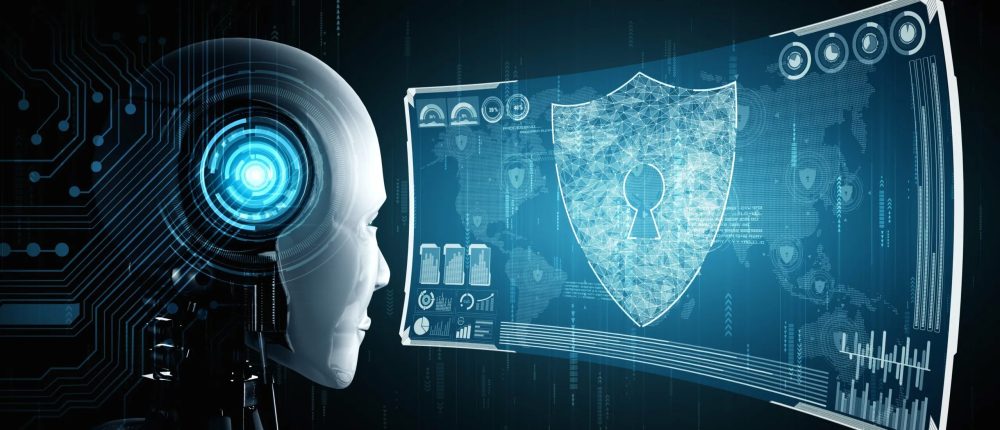In the current digital landscape, the risk of cyber attacks is omnipresent and continually evolving. The growing dependence on technology and interconnected systems has made businesses and individuals more susceptible to cyber threats than ever before. The potential consequences of cyber attacks can be catastrophic, resulting in financial losses, damage to reputation, and even legal repercussions.
As the cyber threat landscape becomes increasingly complex and sophisticated, it is essential for organizations to stay ahead of the curve by implementing robust cybersecurity measures to protect their data. One of the primary challenges in combating cyber threats is the vast number and diversity of potential attack vectors. Cybercriminals are continually developing new tactics and techniques to exploit vulnerabilities in systems and networks, making it challenging for traditional cybersecurity measures to keep pace.
Trevor Cooke from Earthweb says, “the shift towards remote work and cloud-based services has expanded the attack surface, creating new opportunities for cyber attacks.
Consequently, organizations must adopt a proactive approach to cybersecurity, continuously monitoring for potential threats and vulnerabilities to effectively defend against cyber attacks.”
The Role of Artificial Intelligence in Cybersecurity
Proactive Threat Detection
Artificial Intelligence (AI) has emerged as a powerful tool in the fight against cyber threats. By leveraging machine learning algorithms and advanced analytics, AI has the ability to analyze vast amounts of data in real-time, identifying patterns and anomalies that may indicate a potential cyber attack. This proactive approach to threat detection is crucial in today’s fast-paced digital environment, where traditional rule-based systems may not be able to keep up with the speed and complexity of cyber threats.
Automation and Efficiency
AI can also be used to automate routine cybersecurity tasks, freeing up human resources to focus on more complex and strategic security initiatives. This not only improves operational efficiency but also allows organizations to respond more quickly to potential threats, minimizing the impact of cyber attacks.
Adapting to Evolving Threats
AI-powered cybersecurity solutions can adapt and learn from new threats, continuously improving their ability to defend against evolving cyber threats.
A Game-Changer in Cybersecurity
As a result, AI has become an indispensable tool in the cybersecurity arsenal, helping organizations stay one step ahead of cybercriminals.
Leveraging AI for Proactive Threat Detection and Response
AI excels at proactively hunting down cyber threats. Unlike traditional defenses stuck in a rulebook, AI analyzes vast amounts of data to spot hidden dangers. This early warning system lets organizations strike fast, minimizing damage. Plus, AI automates responses, saving time and boosting protection against the relentless cyber threat.
Enhancing Data Protection with AI-Powered Security Measures
In addition to proactive threat detection and response, AI can also be used to enhance data protection measures. With the increasing volume and complexity of data being generated and stored by organizations, traditional security measures may not be sufficient to safeguard sensitive information from cyber threats.
AI-powered security solutions can help organizations better understand their data landscape, identifying potential vulnerabilities and implementing appropriate security controls to protect sensitive information.
Addressing the Challenges of Cyber Threats with AI
AI is a powerful tool for cybersecurity, but it also presents challenges. One key issue is inaccurate threat detection. AI systems often produce false alarms or miss real threats. Organizations must carefully adjust these systems to improve accuracy.
Another challenge is a shortage of AI cybersecurity experts. Companies need to invest in training to develop this in-house skill.
The Future of Cybersecurity: AI’s Impact on Safeguarding Data
The Growing Importance of AI in Cybersecurity
As organizations face increasingly sophisticated cyber threats, the role of AI in cybersecurity is expected to grow in importance. The rise of technologies such as the Internet of Things (IoT) and 5G networks will expand the attack surface, creating new challenges for cybersecurity professionals.
To effectively defend against these emerging threats, organizations will need to rely on AI-powered security solutions that leverage advanced analytics and automation capabilities to stay ahead of cybercriminals.
Enhanced Cyber Threat Defense with AI
AI security solutions are improving. Advanced machine learning and predictive analytics help them fight cyber threats better. These tools can predict and stop cyberattacks, protecting systems and data.
Improved Operational Efficiency and Cost-Effectiveness
AI boosts cybersecurity. Organizations gain efficiency and save money by using AI. Automated tasks and real-time threat detection help optimize security resources and reduce cyberattack costs.
Best Practices for Integrating AI into Cyber Defense Strategies
Organizations must carefully select AI security solutions that fit their needs. Thoroughly assess options and ensure they align with cybersecurity goals. To maximize AI benefits, invest in training to build an in-house AI security team. Also, prioritize ethical AI use for transparent and fair decision-making. AI can proactively defend against threats and protect data, but organizations must address challenges. The future of cybersecurity relies heavily on AI to combat evolving threats.
Check out more AI tool.
Elevate Guest Experience with RoomGenie
🚀 Check out NewsGenie – Your AI consultant
